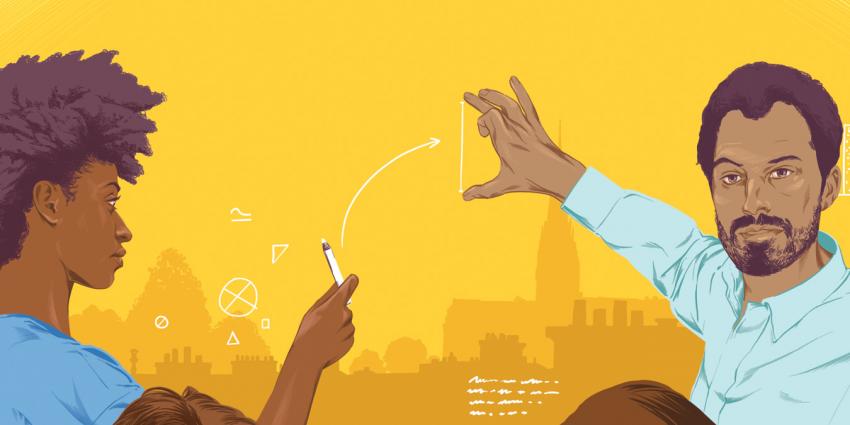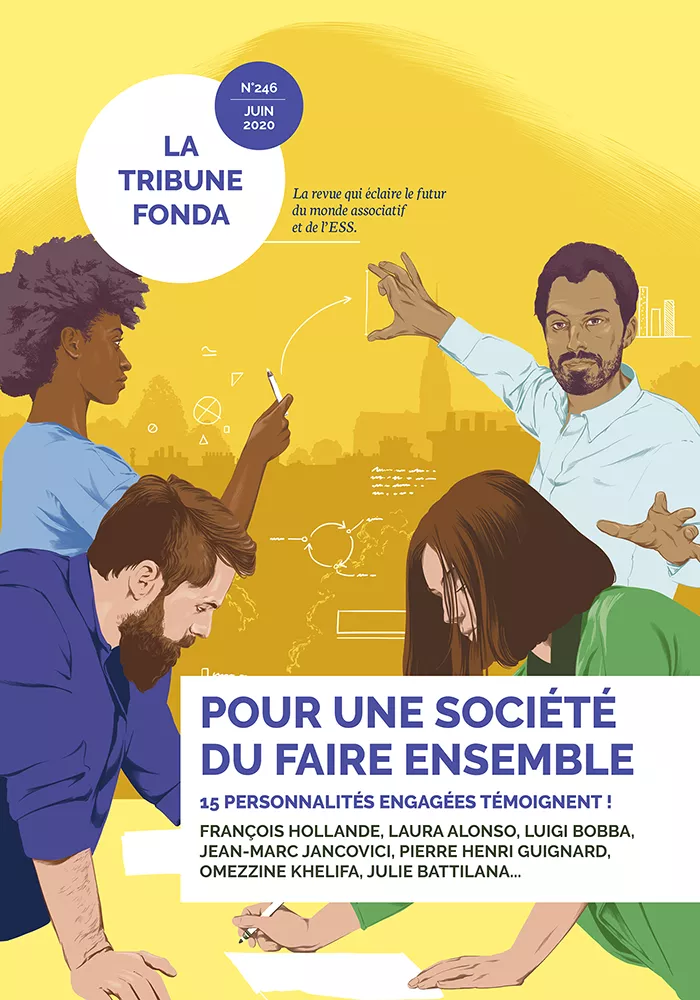Interview with Luigi Bobba, Italian Secretary of State for Work and Social Policy (2014-2018).
Translated from French by Gillian Eaton.
Can you describe the social economy sector in Italy in just a few words? Who are the social economy's main players and initiatives?
Luigi Bobba. The social economy sector - generally known as the third sector in Italy - has some diverse and original features. It is made up of private legal entities with multiple organizational structures - associations, foundations, social cooperatives, support organisations, philanthropic entities - with a number of shared features. These organisations have civic, socially-responsible and social benefit objectives, are non-profits, and base their work on volunteering, sharing and social entrepreneurship.
A significant number of these organisations have a democratic structure and they operate in a variety of fields: these range from social development to support for people with disabilities, socio-educational services to environmental protection work, promoting human rights to the placement of disadvantaged people, and from promoting sport for all to consumer protection. They tend to be small organisations. Istat (the Italian National Institute of Statistics) has recorded close to 360,000 such organisations. Two-thirds of them have a limited number of members and volunteers (from 10 to 30) and a modest budget (under €30,000).
At the same time, there are also large networks of national associations that are well-rooted in local communities. They mobilize close to six million volunteers, receive around €10 billion of donations, and generate turnover of roughly €70 billion, i.e. close to 5% of the country's GDP. The most prosperous entrepreneurial segment - social cooperatives and entities that produce goods and services commercially - employs over 600,000 workers.
In 2017, the Italian government, at that time led by Paolo Gentiloni, adopted a third sector code and new legislation governing social enterprises. With the third sector law, we wanted to give a shared legal code to all of these bodies, while conserving their specific statutory and organisational characteristics. Tax law was also amended to support the development of volunteering, the donation of goods and funds, and to encourage social entrepreneurship.
Specifically, the social enterprise law (legislative decree 112/2017) introduced a large number of innovations:
- It broadened these enterprises' scope of activity.
- It enabled a partial return on investment.
- The law also introduced a total tax exemption on profits if they are fully reinvested.
- The law enabled social enterprises with legal forms other than cooperatives to be set up and to have both profit-making and public entities within the corporate structure, albeit as minority stakeholders.
The new legislation aims to facilitate the creation of an ecosystem conducive to the advent of a new generation of social enterprises. In the context of the current crisis, to what extent can the social economy assert itself as a lever in order to guide us towards a more resilient and virtuous development model?
Both the Coronavirus pandemic and climate change affect everyone but not in the same way. The weakest sectors of society and the most vulnerable people will pay a higher price in terms of health and access to essential goods, education and work. This will be even more apparent for countries, including Italy, where inequality and income disparities are more pronounced. The social economy can become a major driving force for achieving inclusive and lasting prosperity, with everyone being able to access the essentials of life and have their say in decision-making, and in which environmental protection is a global priority.
The social economy can rely on two levers. Firstly, there is a need to encourage the affirmation of a new economic paradigm, based on inclusion in value creation. Secondly, precisely because the social economy is rooted in our communities and first and foremost is based on people's creativity, even at a time of social distancing, the importance of "places" and "interpersonal relationships" will be absolutely key.
Do you think that Europe will come out of the current crisis by implementing a social Europe, opening the way to an inclusive society? Was the opportunity missed under the Barroso presidency, then revisited under Juncker's presidency, and then sidelined by Von der Leyen?
The fundamental rights of the 450 million citizens of Europe are recognized by the 2009 Treaty of Lisbon and the EU's Charter of Fundamental Rights (Nice, 2000). More recently, the European Pillar of Social Rights was adopted in Gothenburg in 2017. It states and summarizes all of the EU acquis in this area. Although the Barroso presidency did introduce a raft of largely innovative social funding (1/5 of the Social Fund and the Cohesion Fund to be allotted to innovation, the social economy and local direct support initiatives, such as the Social Innovation Initiative1), it neglected the issue of social rights. The Juncker presidency, with the adoption of the pillar, brought the ball back into play in terms of principles, but his commission's programme did not make any mention of Europe's mission to protect and be concerned.
The president Ursula Von der Leyen returned social issues to centre stage and set out specific commitments in order to make the Pillar of Social Rights effective. Not only via a European Green Agreement but also by adopting a European minimum wage and the introduction of an EU unemployment benefit, strengthening the guarantee programme for young people, a three-fold increase for the Erasmus+ programme budget, and, finally, the creation of a "child guarantee". Furthermore, as part of the package of Coronavirus crisis response measures, the recent approval of the innovative SURE scheme - temporary support to mitigate unemployment risks in emergency situations - based on a European guarantee and raising capital of €100 billion, indicates that Europe may be heading down the right path.
What alliances need to be built to promote an effective application of the Pillar of Social Rights and work towards an inclusive society? What role would social economy stakeholders have in these alliances, in order to promote peaceful and prosperous societies?
We need to return to the ethos and capacity for initiative of 2014, a year which can rightly be referred to as "the European year of the Social Economy". In January 2014, a major event was held in Strasbourg, promoted by the European Commission and the EESC (European Economic and Social Committee ), to present the future of social enterprises in Europe. In November of the same year, on behalf of the Italian government, I organised a gathering in Rome to devise a programme for the social economy in Europe. Other meetings followed in Paris, Madrid and Luxembourg. However, the momentum has now waned somewhat. Firstly, because each of the families in the third sector (cooperatives, mutuals, associations, foundations, social enterprises) is tempted to return to their individual silos, prioritizing their specific interests. Secondly, because the different national components of all the families have not fully attained the objectives set in 2014, and over the seven-year period have not reinforced the most innovative instruments, such as the reserve of 20% of the social fund.
The strength of the social economy deserves to be better recognized, promoted and showcased. This very serious crisis with the potential risk of a breakdown of social cohesion and the rupture of social bonds, growing inequality, and the impoverishment of the most fragile sectors of society, compels us to forge a stable alliance between all the component parts of the social economy. We need to create an alliance to affirm in principle and in practice that, even in a competitive marketplace, the rule of "man is wolf to man" cannot hold sway, but the rule of "man is by nature friend to man" (Antonio Genovesi), i.e. the principle of cooperation, can prevail. In short, we need an economy based on hope; an economy that seeks to improve everyone's lives.
PROFILE
Luigi Bobba heads Terzjus, the Third Sector, Philanthropy and Social Enterprise Law Monitoring Centre. An Italian politician, a former MP (2006-2018), Luigi Bobba was undersecretary of state at the Ministry of Work and Social Policy from 2014-2018. The national chair of ACLI (Christian Association of Italian Workers) from 1998 to 2006, he currently heads the Global Inclusion Committee and leads ENAIP Mozambique, a network of services for training and the promotion of employment. He is the author of over 30 publications on the third sector, the social welfare system, work policy, and vocational training.
- 1Social innovation initiative. A European initiative aiming to bolster innovation policies through the Horizon 2020 Programme.


